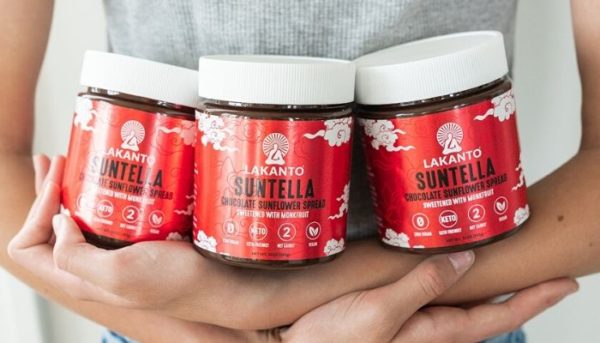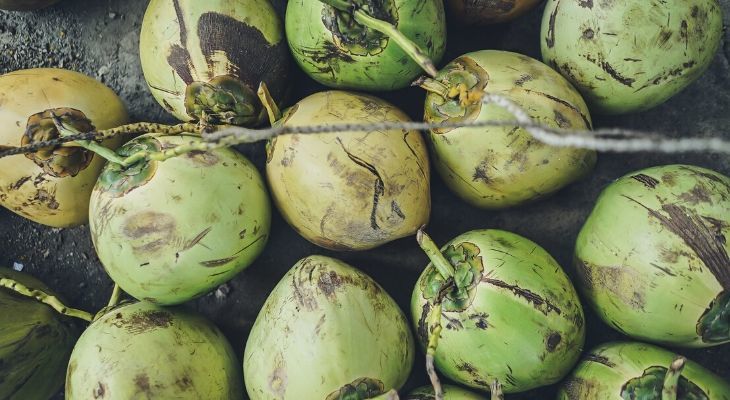Turning Exotic Fruit Into Something Better
Meet two companies who sell fruit, but not as you know it. What they produce could change the way we eat.
Fruit is seen as a “health food”, and deservedly so. It is packed full of everything from vitamins and minerals to antioxidants and fibre, and tastes great, too.
While grabbing a piece and tucking in is one way to get a fruity health kick, two food products have recently muscled their way onto Australian shelves that prove there is another way.
The result of innovative thinking combined with a finger on the pulse of where consumer interest and demand are heading, both take an exotic fruit in its natural form and turn it into something deliciously different… and just as healthy.
Lakanto – The Natural No-Sugar Sweetener
Heard of monk fruit? If not, it’s likely you soon will. In short, it’s a small round fruit native to southern China, where it’s known as “the longevity fruit” owing to its apparent life-prolonging properties. It’s also incredibly sweet, which is what made it ripe to be turned into Lakanto, a natural no-sugar sweetener.
Calorie free and unaffected by high heat, as some natural sweeteners can be, Lakanto is designed to be used as a 1:1 sugar replacement. “And because it has zero impact on blood sugar, it’s suitable for people living with diabetes,” says Lakanto’s Australian media and content strategist Jo Foster.

Image: Lakanto
Only launched in Australia earlier this year, Lakanto was first developed in Japan back in the 1990s by a company called Saraya. At its helm was a diabetic entrepreneur, Shota Saraya, on the hunt for a sugar-free, all-natural sweetener that would taste just like sugar without compromising his health. Saraya’s scientists worked out a way to turn fresh monk fruit into a high-purity extract, 300 times sweeter than sugar. It ticked all the other boxes, too.
Lakanto hit shelves in Japan in 1995 and America in 2007. Now, just six months after landing in Australia, it’s stocked in every Woolworths store around the country.
The popularity of Lakanto makes sense when you consider that while the World Health Organisation keeps lowering the bar in terms of how much sugar is healthy, there are serious health concerns about using artificial sweeteners.
“We have a very small but dedicated team who hit the ground running once Saraya Australia managed to get monk fruit approved for sale as a sweetener by Food Standards Australia New Zealand in early 2019,” says Jo.
On top of Lakanto’s appeal as a fruit-based, all natural, no-sugar sweetener, there’s another reason consumers love it: its people- and planet-friendly ethos. Lakanto’s monk fruit is still grown and harvested according to ancient traditions, which supports rural communities in China, while the extract is produced at an environmentally friendly, zero-emissions plant.
“That’s key for us,” says Jo, “because these days, people are considering much broader issues. It’s not just the individual product people are concerned with, they also want to know that the ethics of a brand align with their values around sustainability and being eco-friendly.”
Tender Jack – The Plant-Based Meat Alternative
The clue about the fruit playing the starring role in this product is in the name. It’s made from jackfruit – a large, tree-borne fruit native to tropical Asia.
When young, jackfruit naturally has a tender, meat-like consistency and a subtle taste. This makes it ideal as a meat alternative for use in everything from salads and burgers to tacos and pizzas.
“Jackfruit has been in Australia for a few years, but mainly sold in jars in Asian grocers,” says Simon Stewart, marketing manager for Amazonia, the Gold Coast-based company behind Tender Jack. Amazonia also sells frozen Acai and Raw supplements.
“Dwayne [Martens], Amazonia’s founder, is a vegetarian himself and had known about jackfruit for some time, but it was on a recent visit to a tradeshow in Germany that he realised it was the next big thing in terms of plant-based meat alternatives.”

Image: Amazonia Co.
Sourcing organically grown jackfruit that’s hand harvested from food forests across the “Land of Jack” in Southern India, Amazonia officially launched Tender Jack on the Australian market a few months ago.
Available in four flavours, it has been incredibly well received. “We already have large health food and grocery retailers on board, with many more knocking on the door. Our first few containers actually sold out immediately, before they’d even arrived onshore.”
It helps that vegetarianism continues to grow in popularity. Roy Morgan research in 2018 found nearly 2.5 million Australians – or 12.1 per cent of the population – consumed food that was all, or almost all, vegetarian.
It also helps that Tender Jack has an advantage over most other meat alternatives on the market. “At Amazonia, we’re all about wholefood ingredients that are organically grown and from an ethical, sustainable source,” says Simon. “And that’s where Tender Jack has its niche compared with other meat-alternative products produced from multiple ingredients that are neither organic or sustainably sourced.”
As a company with deeply imbedded plant-based product values, this is unlikely to be the last innovative fruit product to emerge from Amazonia. “Tender Jack is just the beginning,” says Simon. “In fact, we already have a few other products in the pipeline.” Watch this space.
-
Enquire!
- Book a stand
